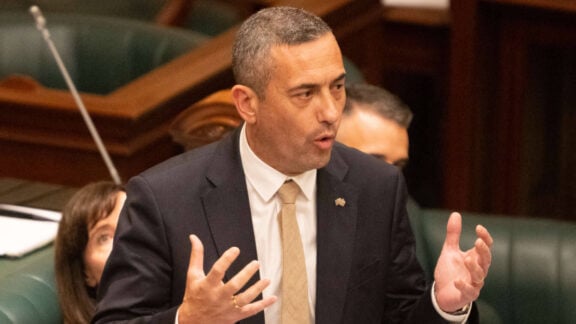The full Gonski funding over six years, as initially planned and implemented, is the minimum requirement if all schools are to deliver the level of resources needed in order to give every child a high quality education. This is what is highlighted at the 2014 conference statement of the Australian Education Union (AEU), headed nationally by NSW teacher and unionist Angelo Gavrielatos.
The Australian Education Union, representing 190,000 teachers and allied educators in schools, colleges and early childhood centres, held its annual conference last weekend in Melbourne and vouched to continue to campaign in support of the Gonski reform as we go into the May federal budget. Failure to implement the Gonski recommendations, said the union, will leave up to 20 per cent of public schools across Australia without an adequate level of resources and will perpetuate educational inequality.
In relation to the announced review of the national curriculum, the AEU believes that this ideologically driven review is principally designed to divert public attention from the failure of the Abbott government to commit to the full six years of Gonski funding as agreed between the former Labor federal government and five state and territory governments.
In the 2014 conference statement the Australian Education Union rejects the autonomy of schools as advocated by federal education minister Christopher Pyne and accuses the federal government of adopting market driven policies in the TAFE sector, while at the same time they highlight that the federal government cuts in recurrent funding to the Vocation Education and Training (VET) resulted in a drop of 6 per cent between 2011 and 2012.
Addressing the 2014 AEU Conference in Melbourne was George Alevizakis, a member of the Executive of the Federation for Greek Secondary School Teachers (OLME). In his address, Mr Alevizakis stressed that education and health are public goods and informed the Australian delegates that since the onset of the crisis in Greece, education funding has been reduced by 33 per cent, while teachers wages have been slashed by 38 per cent to 45 per cent for the newly appointed teachers, who are now expected to start work with a gross monthly salary of 640 euros.








